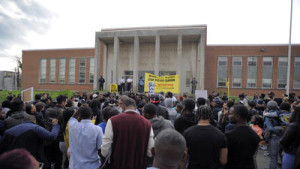After months of community meetings, a Montana panel has found (among other things) “… that low- to moderate-income Montanans most often face legal crises stemming from housing problems, custody disputes, domestic violence, and debt collection. These issues are often compounded with other complicating factors, the report said, such as mental illness or diminished capacity, substance abuse, physical disabilities, threats to safety, and child care. Many of these issues are intersectional, meaning they affect and intensify the other.”
The Flathead Beacon reported on the panel’s findings, noting that “… many Montanans don’t realize, for instance, that they don’t have the right to an appointed attorney while facing civil issues. They can be evicted, lose custody of their children, or lose their home without ever having the right to an attorney.”
The Beacon also reported that the Access to Justice Commission “… concluded that there needs to be a statewide inventory of services and programs available in each region, and a means for making this inventory known in those regions. Along with the inventory, the commission said there should be a means for linking Montanans with legal problems to the programs and service providers.”
Read the report, and find a link to the Commission’s complete findings, here:
Report Details Need for Education, Increased Access to Civil Legal Resources – Flathead

